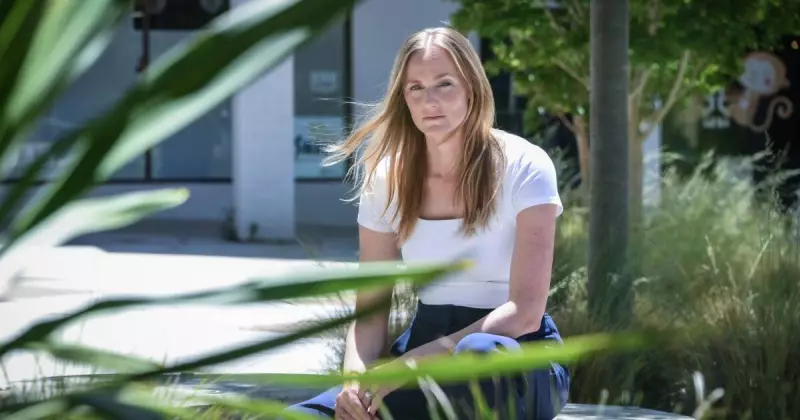
The journey from apartheid-era South Africa to the corridors of power in Canberra has forged a politician with unique perspectives on community, safety, and public service. Deborah Morris, recently elected deputy leader of the Canberra Liberals, brings with her experiences far removed from typical Australian political backgrounds.
A Childhood Between Beauty and Danger
Born in Perth in the 1990s, Deborah Morris's life took a dramatic turn at age three when her family moved to Cape Town, South Africa, in 1993. This was the year apartheid officially ended, a time when most white families were leaving the country, not joining it.
"It's a very vibrant community where there is so much good and so much beauty in the community, but equally at the same time, so much suffering," Morris reflected during an interview at Little Istanbul in Greenway.
The family's commitment to South Africa was tested almost immediately. Just months after their arrival, Morris's father attended Sunday mass at the mixed-race St James Church of England while his wife and four children stayed home. During the service, members of the Azanian People's Liberation Army threw grenades and opened fire, killing eleven parishioners.
Despite this traumatic event, the family remained in South Africa. "They remained committed to serving in South Africa because in their hearts it was the right thing to do, even if it was not the easy thing to do," Morris would later say in her maiden speech.
Formative Experiences in a Troubled Nation
Life in Cape Town exposed the young Deborah Morris to realities most Australian children never encounter. She attended local public schools and formed close friendships, including with her best friend, a Zulu girl. Yet daily life was punctuated by violence and deprivation.
"Sometimes I would open the fridge and there'd be nothing in it," Morris recalled, though she noted her parents always managed to provide meals for the family and often shared with homeless people they befriended.
The 36-year-old politician has a disconcerting habit of smiling when recounting childhood stories that would shock most Australians - narrowly escaping men chasing her with tasers, hearing gunshots at night, and knowing multiple people who died from drug abuse, overdoses, and gang violence.
"I could give you a list of names of people I know who have lost their lives as a result of it," she said matter-of-factly.
From Journalism Aspirations to Political Reality
Returning to Australia at age 18, Morris experienced culture shock of a different kind. Working at a supermarket deli, she was appalled to see staff throwing out day-old prawns and fish, a stark contrast to the scarcity she'd witnessed in South Africa.
She studied journalism and international relations with ambitions of becoming a war correspondent, but eventually chose politics over journalism. Moving to Canberra in 2017, she worked as a media advisor for then-opposition leader Alistair Coe.
"She's very practical, sensible and really engaged with the community, and I think she's very grounded and always brings common sense to issues," Coe remembered of his former staffer.
After the Canberra Liberals lost the 2020 election, Morris moved to federal politics, working for Victorian Liberal Senator James Paterson, who later helped campaign for her when she was preselected for Brindabella in 2024.
Leadership and Policy Priorities
Morris became deputy leader alongside Mark Parton in October 2025 after the resignation of Leanne Castley and Jeremy Hanson. The pair represent Brindabella, which covers Tuggeranong - the only electorate that saw a swing towards the Canberra Liberals in the last election.
"We focused heavily on the bread and butter issues that mattered to Canberrans," Morris said of their electoral success.
Her policy focus reflects her childhood experiences. She campaigns strongly on crime, police, and law and order issues, supporting tougher sentencing, more police funding, anti-consorting laws, and the criminalisation of drug use.
"If you weaken laws that are designed to keep the community safe, a lot of people are going to get hurt, and governments have a responsibility to ensure that that doesn't happen," she argued.
Despite acknowledging Canberra is relatively safe, Morris believes this safety is threatened by the Labor government's liberalised laws and economic management.
Former ACT Liberals Senator Barry Humphries said the new leadership team "bridges the two main arms of the party" and noted that Morris has "the potential to provide those new perspectives on long-standing problems".
However, Humphries cautioned that strong, evidence-based policies are essential for the party to regain government after 23 years in opposition.
Morris rejects political labels like "conservative," focusing instead on practical issues affecting Canberrans. "When we're out in the community talking to people every single day, nobody asks us about conservatism or progressivism," she said.
Now balancing political leadership with a busy blended family of three teenagers, a toddler, a baby, and two dogs, Morris brings her unique life experiences to the challenge of rebuilding the Canberra Liberals.
"It's very clear to me that we have a moral obligation upon us to present a strong, credible alternative to government in 2028," she stated. "I have a laser-like focus on that, and I work very, very hard to get things done."





